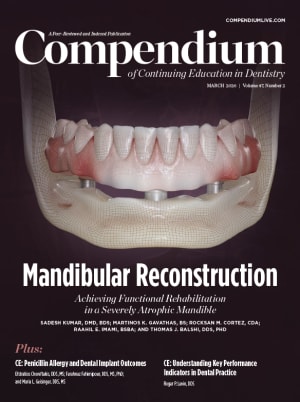twist plus® Disposable Oscillating Prophy Angles: A New Twist on Efficient, Ergonomic Polishing
With experience in clinical, academic, and corporate environments, Leann Keefer, RDH, BS, MSM, has a unique, well-rounded perspective in the arena of dental hygiene and infection prevention. Her qualifications include a previous appointment as Director of the Dental Hygiene Program at the Community College of Denver, as well has her current position as Director of Education for Crosstex International, Inc., a leader in infection prevention and control. "Polishing has always been an integral part of dental hygiene care provided to patients," she says. "Today, polishing has moved into an era of ‘essential selective polishing.'"
Evidence-based decision-making guides essential selective polishing while taking into consideration the clinical situation that patients present with and their individual needs. With this approach, the clinician and hygienist select the appropriate cleaning or polishing agents based on what is best for the patient while addressing his or her preferences. "We're using clinical knowledge to provide optimum care."
Taking advantage of new, innovative products is another key component of using best practice, Keefer suggests. For her, Crosstex's twist® plus Oscillating Disposable Prophy Angles are an excellent example of how advanced technology results in high efficiency and ergonomic design. The disposable angle, ideal for meeting the needs of essential selective polishing, moves in a 120-degree oscillating (back-and-forth) motion instead of a traditional 360-degree spinning motion. In doing so, it greatly diminishes frictional heat while reducing the spatter of prophy paste, saliva, blood, and other potentially infectious materials, she attests.
"When you have movement of the rubber cup against a tooth surface, frictional heat will be generated, and pressure applied to a prophy cup with paste against a tooth's surface spinning 360 degrees will generate more friction and heat than an oscillating movement. So, with the twist plus, it's a more controlled movement with less friction," Keefer affirms. Further, frictional heat generated with conventional 360-degree spinning motion, she explains, can potentially damage the pulp inside the tooth. This is particularly problematic for teeth that have large pulp chambers, such as deciduous teeth and newly erupted permanent teeth. "Hygienists should be aware of the size of the pulp chamber," advises Keefer, who recommends following best practice to use the lowest speed/RPM possible that moves the cup against the tooth.
The advantages of the oscillating movement are especially evident with Keefer's periodontal patients. She explains that 60% to 98% of all periodontal patients have some level of gingival recession. "The root surface is much softer and will be more vulnerable to abrasion," she says. "With the oscillating movement, there is less chance of causing root abrasion, so it's safer for the patient and can reduce dentin hypersensitivity of the root." Also, the gear mechanism inside the disposable prophy head provides a smooth, continuous motion and reduces stalling and vibration, which results in additional comfort to the patient, Keefer notes.
Another important aspect is the cup design, which includes a webbed or fluted inner surface. "With a webbed cup, the fluted inner surface is recessed from the edge. This helps provide cup stability and captures retention of the prophy paste inside, which reduces spatter," Keefer says. She adds that while soft cups are more highly recommended because they readily adapt to various tooth surfaces and require less pressure, which reduces unnecessary stress and fatigue for the practitioner, the twist plus is available in both soft and firm cups.
Dentistry lends itself to visual learning-
especially an active technique such as polishing, Keefer suggests. For this reason, Crosstex provides a variety of online training videos in addition to literature supporting twist plus and the many other products within the Crosstex portfolio.
Overall, Keefer sees clinical knowledge and assessment as key factors for essential polishing outcomes. "Consider the patient's clinical presentation and needs, and always respect their preferences and values. One size does not fit all, and the same is true of our patients," she concludes.
Crosstex International, Inc.
10 Ranick Rd
Hauppauge, NY 11788
888-276-7783
crosstex.com
